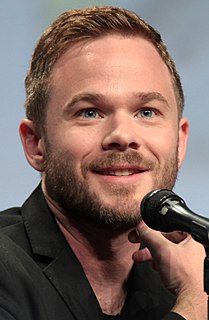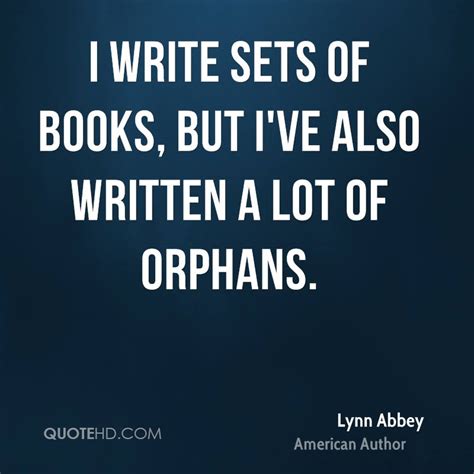A Quote by Paul Di Filippo
The SF genre, of course, is really an organically evolved, marketplace-determined, idiosyncratic grab bag of themes and signifiers and characters and icons and gadgets, some of which hew to the realistic parameters and paradigms embraced by science, others of which partake more of fantasy and magic.
Related Quotes
Introduce your main characters and themes in the first third of your novel. If you are writing a plot-driven genre novel make sure all your major themes/plot elements are introduced in the first third, which you can call the introduction. Develop your themes and characters in your second third, the development. Resolve your themes, mysteries and so on in the final third, the resolution.
Let the Bible be the Bible. It's not about science. It's not accurate history. It is a grab bag of religious fantasies written by many authors. Some of its myths, like the Star of Bethlehem, are very beautiful. Others are dull and ugly. Some express lofty ideals, such as the parables of Jesus. Others are morally disgusting.
I really wish that peoplewould just say, 'Yes, it's a comic. Yes, this is fantasy. Yes, this is Science Fiction,' and defend the genre instead of saying, 'Horror is a bit passe so this is Dark Fantasy,' and that' s playing someone else's game. So that's why I say I'm a fantasy writer and to hell with 'It doesn't read like what I think of as a fantasy'. In that case what you think of as a fantasy is not a fantasy. Or there is more to it than you think.
Poetry restores language by breaking it, and I think that much contemporary writing restores fantasy, as a genre of writing in contrast to a genre of commodity or a section in a bookstore, by breaking it. Michael Moorcock revived fantasy by prying it loose from morality; writers like Jeff VanderMeer, Stepan Chapman, Lucius Shepard, Jeffrey Ford, Nathan Ballingrud are doing the same by prying fantasy away from pedestrian writing, with more vibrant and daring styles, more reflective thinking, and a more widely broadcast spectrum of themes.
The more aware we are of our basic paradigms, maps, or assumptions, and the extent to which we have been influenced by our experience, the more we can take responsibility for those paradigms, examine them, test them against reality, listen to others and be open to their perceptions, thereby getting a larger picture and a far more objective view.
I do love science fiction, but it's not really a genre unto itself; it always seems to merge with another genre. With the few movies I've done, I've ended up playing with genre in some way or another, so any genre that's made to mix with others is like candy to me. It allows you to use big, mythic situations to talk about ordinary things.
'Filk' is the folk music of the science fiction and fantasy community - you get parodies, you get traditional music that's had the words slightly modified, and you'll also get just original works that have been written about science fiction and fantasy works, or with science fiction and fantasy themes.
What is necessary for 'the very existence of science,' and what the characteristics of nature are, are not to be determined by pompous preconditions, they are determined always by the material with which we work, by nature herself. We look, and we see what we find, and we cannot say ahead of time successfully what it is going to look like. ... It is necessary for the very existence of science that minds exist which do not allow that nature must satisfy some preconceived conditions.
Were really trying to make Crisis as accessible as possible, which is extremely difficult to do because it involves so many characters. But, again, you dont need to know all the details. Obviously the mainstays are there Superman, Batman, Wonder Woman and heavily focused on. There are a ton of great characters, and a lot happens to them over the course of Infinite Crisis . Some change and evolve, others fall, but it really is about trying to bring everybody on stage. We probably have 90 percent of the DCU showing up, if not more but without losing focus on what the story is.





































